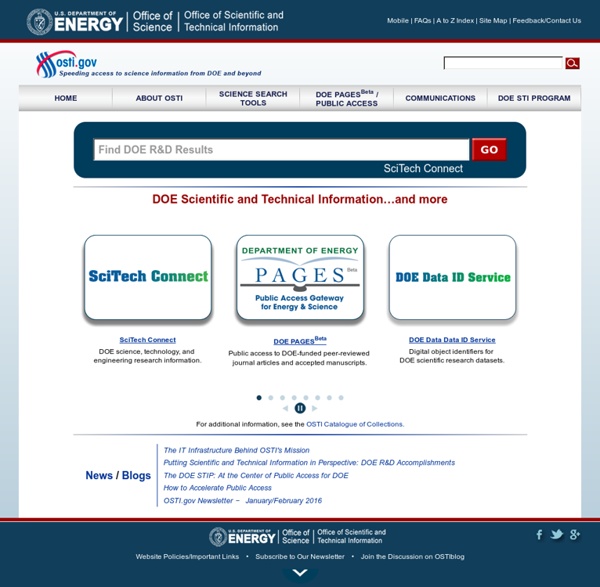



Search FishBase Associated Journal Publish in our journal partner Acta Ichthyologica et Piscatoria the results of your primary research on fishes about growth, weight-length relationships, reproduction (maturity, fecundity, spawning), food and diet composition, introductions and range extensions for faster subsequent entry in (2011 impact factor: 0.547). Indexed Journal Cybium (publisher: SFI, Société Française d’Ichtyologie) For journal editors: Would you wish that your journal were indexed in FishBase, please contact our librarian. References Citing FishBase How to cite FishBaseTo give due credit to the original authors, please cite data taken from FishBase by Main Ref. and/or Data Ref. of the respective record. Cite FishBase itself asFroese, R. and D. DisclaimerFishBase present information on fishes as correctly as possible. Copyright This work is licensed under a Creative Commons Attribution-Noncommercial 3.0 Unported License.
Encyclopedia of Earth JournalSeek - A Searchable Database of Online Scholarly Journals Home - Environmental Studies Credo LibGuides can be linked to from your institution's webpage. For LibGuides subscribers, these guides may be freely copied and modified to create or supplement your own LibGuides. Learn how to copy a LibGuide. When clicking on the links, your Credo account is accessed by IP authentication or through your institution's proxy server. For help with access issues, contact libguides@credoreference.com Our LibGuides work best for institutions with a Credo Academic Core subscription. Books in the tabs marked "Publisher Collection titles" are not part of the Core Collections; your institution must subscribe or purchase these titles separately for access.